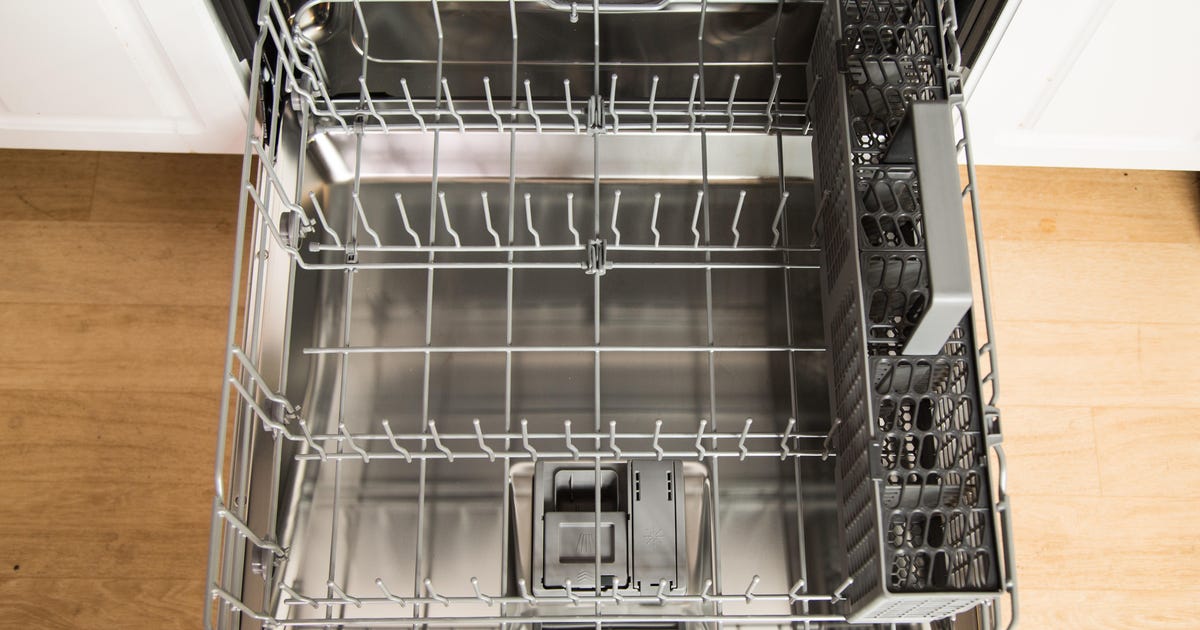
Stop Pouring Vinegar Into Your Dishwasher. Here's Why
You've likely had someone tell you that putting vinegar into your dishwasher's rinse aid or detergent compartment was good for keeping your dishes spotless. While it can keep the water spots at bay and give your glasses that desired sparkle, white vinegar can ruin your dishwasher.
Yes, we understand vinegar is just a fraction of the cost of rinse aid. However, do you really want to drop $800 instead when your dishwasher no longer works?
We'll explain below why you shouldn't use vinegar as a rinse aid. If you're set on using it anyway, we'll tell you the best method so you won't ruin your dishwasher.
White vinegar can destroy your dishwasher
White vinegar is great for your everyday cleaning, from unclogging your kitchen sink to cleaning your showerhead. It's also great at removing hard water spots on your dishes. But there are some places it just doesn't belong, and your dishwasher rinse aid compartment is one of them.
White distilled vinegar is an acid with a pH of around 2 to 3. In comparison, sulfuric acid -- which destroys many substances it comes in contact with -- has a pH of around 1.
So, be aware that vinegar can break down the rubber gaskets and hoses in your dishwasher, leading to costly damage. On top of that, if vinegar mixes with salt that's been left on your dishes, it can discolor metal pans, flatware and mixing bowls.
The bottom line: We recommend using rinse aids that are designed to be used in a dishwasher -- for instance, Finish or Cascade. While they too can contain vinegar, the acidity is low enough to not damage your dishwasher or dishes.
If you must use vinegar, do this
If you're still set on using vinegar in your dishwasher, you can -- just don't put it in the rinse aid dispenser. Instead, follow these rules for cleaning your dishes in the dishwasher with vinegar to cause as little damage as possible.
- Use white vinegar with the lowest acidity possible. Most come with 6% acidity but if you can, try to find 5%. This is the lowest concentration of acidity for household white vinegar and will cause the least amount of damage.
- Pour the vinegar into the bottom of your dishwasher during the rinse cycle so it's diluted with water.
- Even better, pour a cup of vinegar into a bowl and place it on the bottom rack of your dishwasher.
How to prevent water spots on your dishes
If you're using a rinse aid -- or vinegar -- and still notice water spots or other heavy buildup on your dishes, there's another problem. Chances are you have hard water and will need to invest in a water softening system to prevent these spots.
Water is considered "hard" if it has high levels of dissolved compounds of magnesium and calcium, which causes mineral buildup on your dishes, faucets and bathtub. Water softeners are systems that remove the calcium and magnesium ions that cause the water to be considered hard. Once the water is "softened," it won't leave spots on your dishware and you'll hopefully never need to use vinegar in your dishwasher again.
For more cleaning tips, check out this hack that quickly unclogs your showerhead. Also, here's how to unclog your toilet without a plunger.
Source
